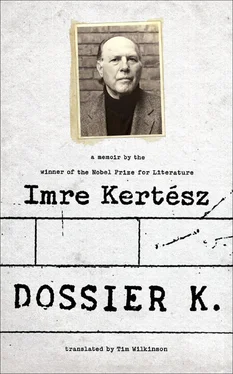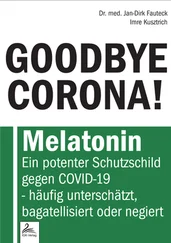No, but about the English sea captain .
Captain Hornblower, the commander of the flagship, then of a frigate, and later still of a ship of the line, which participates in maintaining the blockade that was set up against Napoleonic France. He was a marvellous figure: plagued by an inferiority complex, he constantly doubted his own abilities, fell in love with the unattainable Lady Barbara (Susie for me: if she turned her face to the light a soft, ever-so-fine fluff could be seen on her upper lip, which drove me to distraction!) — a quite baffling figure for a Hungarian boy who had been used to the unimpeachable heroism of János Arany’s Toldi, John and Matthias Hunyadi, and the protagonists of Maurus Jókai’s tales; a fallibly human figure, who in the end wins his fights and is an implacable opponent of usurpers, of Corsican despots, as Napoleon is apostrophized in the book. Only a dunce could not tell that the latter stood for Hitler, whom the Anglo-Saxon powers would eventually defeat, because they had one attribute no dictator could call on, and that was humanity, the ability to admit weakness, which can be a fount of incredible strength.
You called the book a solace for your “sick soul.”
Yes. I think that I was dealing with a pretty sick soul at that time, and I don’t mean I was tormented simply by adolescence, the usual tortures of puberty. I hated those around me, hated myself, hated my school, I hated anyone or anything; I even hated having to climb out of bed in the morning. I hated even our home in Baross Street. The housing shortage started in Budapest during the war, you know; that was when the partitioning of apartments started, turning a single solidly constructed flat into two or three shoddily built flatlets. Ours, for instance, didn’t have a hallway, so one entered by stepping directly from the outside corridor into the living room, and for some inexplicable reason I took this to be a catastrophe that had been visited on us. It was useless my stepmother urging me to invite my friends round from time to time; I feared that they would burst out laughing the moment they stepped from the corridor into the front room. Apart from anything else the room contained my bed — an ungainly piece of furniture that was a sofa by day and a couch by night. My father and stepmother slept in the inner room, where there was a stupid clock perched on top of one of those obligatory display cabinets stuffed with all manner of china knick-knacks. The clock struck once on every half-hour and on the hour it would peal the Big Ben chimes. Sometimes I would awake early and lie there in torment, waiting for the hour to strike. If it struck just once I couldn’t tell from that what time it was; I had to wait for Big Ben. One, two, three … six — no, the pig would chime once more: seven o’clock, time to get up! I would cower mutely in bed. Two or three minutes later my father would start calling from behind the door. He would call my name at an ever-growing volume. Master Imre! Emmerich! Emerico! Grudgingly I would crawl out of bed. It was my task to light the gas ring under a kettle of water for the Planta tea. A tough life kids have.
You were going to grammar school by then .
As I said, the Madách Gymnasium in Barcsay Street. Around the mid-Nineties, when several of my books had been published in Germany, I was called on by a German TV reporter here in Budapest, and he wanted, among other things, to take a look at the “alma mater” where I had, so to speak, finished my secondary schooling. It was a boiling-hot summer day, during the school holidays. The school was undergoing some rebuilding work, and at the top of the entrance steps stood that singularly emblematic figure of all public buildings in Hungary: a cleaning woman with a bucket of water in one hand and a broom in the other. “Can’t you see there’s building work going on?!” she bawled. In the end, she hunted out the head of the school. She wasn’t much friendlier though. You say you attended this school? You’re a writer? What’s your name? Never heard of you. There were all sorts of famous writers who went to this school and they always send copies of their new books. Did you send any? No, I didn’t. Well, there you are, see! says the principal. The German journalist, of course, didn’t understand what all this was about and was getting increasingly edgy. “Do you mean to say that people here don’t know who Mr. Kertész is?” he said in German. Too right, they didn’t know who Mr. Kertész was; they didn’t even have a record of establishing separate streaming for Jews. The class registers for the years from 1940 to 1944 had all been lost, in the words of the principal. How odd, I remarked. We departed.
I have to tell you that in all honesty even I heard nothing about “Jewish classes.” I had no idea that children were separated on the basis of religion .
A racial basis, in fact. Hungary’s first so-called Jewish law was enacted in 1938, and either that one, or the second one of the following year, reactivated the so-called Numerus Clausus of 1920, which had been suspended in 1924. What that meant in practice was that institutions of higher education could only accept Jewish or “effectively Jewish” students to the percentage that they represented in the overall population, which as far as I recall was about six percent at the time; in other words, out of one hundred pupils only six could be Jewish. In that context the introduction of Jewish classes in some state grammar schools counted more as an advantage than a disadvantage, however ugly the terminology may sound. In schools that were so designated it was possible every year, from 1940 onward, to set up a separate Jewish class of forty pupils. These were the B stream, as opposed to the A stream, which was filled by children of impeccable pedigree. Now, in order to get into a B stream you needed to have gained an all-A-grade report at your elementary school. So, judge for yourself what clots these people were to set up a class of children who were the elite of the despised race, whereas the supposedly privileged class had to take the bright and not-so-bright alike. Is it any wonder that teachers secretly competed to be allowed to teach Jewish classes?
Did you encounter any discriminatory attitudes against those of you who were in the Jewish class?
To the school’s credit, I would have to say no. The only person who had any of the racist sentiments of the Arrow-Cross Party was a gym teacher by the name of Csorba. But we’re again in danger of slipping into dreary anecdotes, like frontline veterans (to use one of Jorge Semprun’s expressions), which is something I would prefer to avoid.
And all the more as there are barely any literary relics from that period .
Indeed, and that is rather surprising. As far as the period 1940–45 goes, I think first and foremost of the volumes of Sándor Márai’s diaries, then the reminiscences that Miklós Szentkuthy had tape-recorded and later published under the curious title Frivolous Confessions , and along with that Béla Hamvas’s Carnival … What else? Would you add anything?
Ferenc Karinthy’s Springtime in Budapest.
Forget that.
Tibor Cseres’s Cold Days.
O.K.
Ernő Szép’s The Smell of Humans.
O.K.
Tibor Déry’s My Memoirs of the Underworld.
We can forget that.
Isn’t that a bit hasty on your part? After all, Tibor Déry is …
Yes, of course, of course. Look, I’m not setting myself up as a knocker, and I never had any time for literature of the official canon, let alone the Party-approved nomenklatura , but I am impudent enough to select my own reading according to my own taste. There was a time when I had a try with Tibor Déry, but that was a long time ago if ever …
Читать дальше












